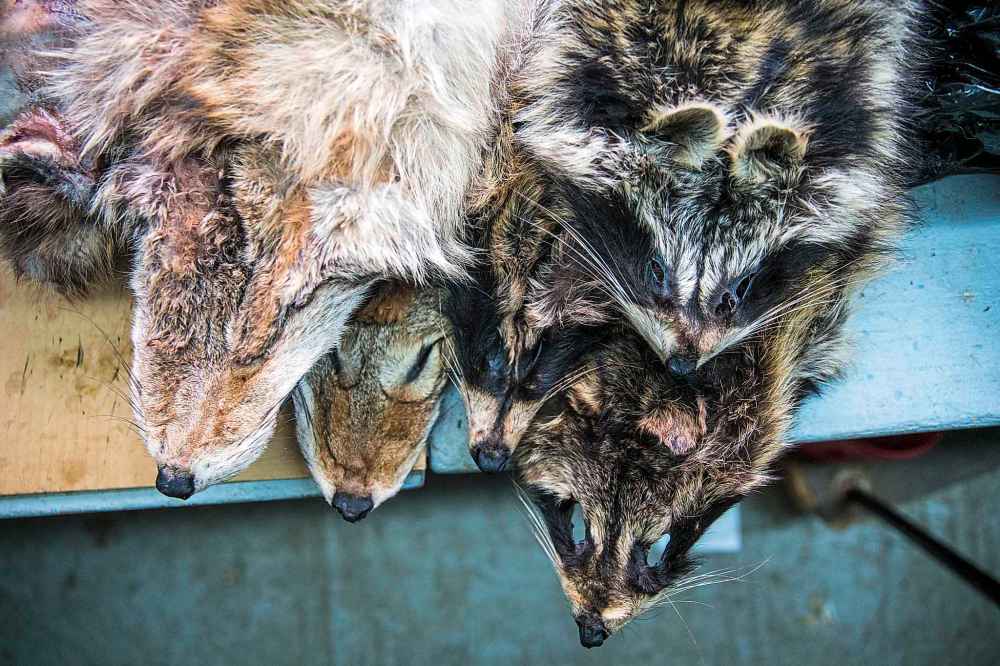Northern Stores no longer buying trappers’ pelts
Advertisement
Read this article for free:
or
Already have an account? Log in here »
To continue reading, please subscribe:
Monthly Digital Subscription
$0 for the first 4 weeks*
- Enjoy unlimited reading on winnipegfreepress.com
- Read the E-Edition, our digital replica newspaper
- Access News Break, our award-winning app
- Play interactive puzzles
*No charge for 4 weeks then price increases to the regular rate of $19.00 plus GST every four weeks. Offer available to new and qualified returning subscribers only. Cancel any time.
Monthly Digital Subscription
$4.75/week*
- Enjoy unlimited reading on winnipegfreepress.com
- Read the E-Edition, our digital replica newspaper
- Access News Break, our award-winning app
- Play interactive puzzles
*Billed as $19 plus GST every four weeks. Cancel any time.
To continue reading, please subscribe:
Add Free Press access to your Brandon Sun subscription for only an additional
$1 for the first 4 weeks*
*Your next subscription payment will increase by $1.00 and you will be charged $16.99 plus GST for four weeks. After four weeks, your payment will increase to $23.99 plus GST every four weeks.
Read unlimited articles for free today:
or
Already have an account? Log in here »
Hey there, time traveller!
This article was published 11/12/2019 (2195 days ago), so information in it may no longer be current.
Northern trappers are reeling after learning they will no longer be able to sell their furs for instant cash at remote grocery and general stores.
The North West Company, the Winnipeg-based parent company of 25 Northern Stores and a single North Mart in Manitoba, decided earlier this month it would pause its in-store fur purchasing program.
For years, the company has bought pelts off trappers in exchange for cash so it could resell them at auctions. The practice has become one way both full-time and hobby trappers — especially those who live in isolated communities — supplement their incomes.

“That’s the only way people can buy gas and groceries and whatever and go back and forth to their traplines,” said John Clarke, a lifelong trapper from Barren Lands First Nation, located almost 930 kilometres north of Winnipeg.
“Trapping and commercial fishing is our livelihood out there.”
Derek Reimer, director of business development at the North West Company, told the Free Press the company has suspended the program due to demand for pelts at local auctions declining “significantly” in recent years.
“We’ll re-evaluate again later in 2020,” he said.
Reimer noted even auctions haven’t been exempt from the decline. This autumn, the North American Fur Auction entered creditor protection. It closed its Winnipeg office on Dec. 1. The only Canadian auction standing, the much smaller Fur Harvesters Auction, has taken over the space.
The chief of his northern community, Clarke said local trappers now have to take their furs to the annual Thompson Fur Table if they want to sell them since they don’t have any local buyers. Or, he said, they have to figure out a way to ship them to the only remaining auction house in Canada.
Either way, Clarke said the expense of doing so may not be worth it if trappers don’t have a lot of fur.

“Trappers, now, they have jobs they rely on — not like our grandfathers that used to depend on trapping to survive, to make a living out of it,” said Clinton Crate, a trapper from Norway House Cree Nation, a fly-in community located more than 450 kilometres north of Winnipeg.
Crate, 39, said trappers of his generation have to take short trips to their traplines and return home to better-paying jobs. It was only five years ago he made a living as a trapper, following in the footsteps of his great-grandfather. Now, he does contract work in the mining industry.
The already-precarious work will be even more so now that northern trappers do not have a convenient place to make fast money for their pelts, he said. “We are losing our way of life, the traditional way of life.”
The Barren Lands chief shared similar concerns. “Trapping’s going to disappear…. It’s a big worry for me. If trapping’s gone, what are youth going to turn to?” Clarke said.
While the North West Company essentially gave trappers a cash-advance, Manitoba Wildlife Federation executive director Chris Heald said trappers could benefit because the stores were simply a broker.
Heald, a trapping instructor, said trappers could make more money if they sell directly to auctions.

Still, he acknowledged the industry is facing tough times. “The return on the investment it takes to go out there and trap the lines isn’t paying back,” Heald said. “Some guys are still making a living out of it, but the majority of it is a hobby industry.”
maggie.macintosh@freepress.mb.ca
Twitter: @macintoshmaggie

Maggie Macintosh reports on education for the Winnipeg Free Press. Funding for the Free Press education reporter comes from the Government of Canada through the Local Journalism Initiative.
Our newsroom depends on a growing audience of readers to power our journalism. If you are not a paid reader, please consider becoming a subscriber.
Our newsroom depends on its audience of readers to power our journalism. Thank you for your support.

